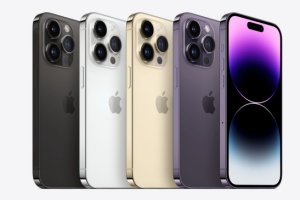Hello and welcome back to the Skills 360 podcast. I’m your host Tim Simmons, and today, I want to give you some tips for using metaphors to make your speech more powerful.
Have you ever heard of Alfred Sloan? He was the head of General Motors during the Great Depression. He once gave a speech where he talked about GM at the time as a “great ship in a fierce storm.” From that description, you get a sense of danger, of a boat getting tossed around in the unpredictable ocean waves. And you can imagine that everyone on that ship has to work hard to get through the storm which, like all storms, would, one day, end.
Alfred Sloan was using a metaphor. GM isn’t really a ship. And the economy isn’t really an ocean. He could have talked about how the company needed to improve its balance sheet during a time of economic uncertainty. But a ship in a storm is a much more memorable and impactful way of describing the situation. And if you read or listen to speeches by great leaders, you’ll see they are full of interesting comparisons like this.
So what exactly is a metaphor? Well, a metaphor is when you compare something you’re talking about to another idea, for example: “time is money.” This comparison helps us understand, or see something from a new perspective. Just as “time is money” helps us see time as very valuable. Or, as Alfred Sloan said, GM is like a ship. And the Great Depression is a storm. And metaphors aren’t reserved just for big speeches by famous people. Metaphors are everywhere in our language.
One of the most common kinds of metaphor we use are idioms. For example, we often say “climb the corporate ladder” to mean try to attain higher positions in a company. But saying “climb the corporate ladder” is more evocative. That is, it has more emotional power.
When you’re tired, you can say you’re “running on empty,” like a car with no fuel. When you don’t have all the right information, you can say you’re “missing a piece of the puzzle.” And when you’re waiting for someone else to make a decision, you can say “the ball in his court.” You may have learned some of these idioms, but you may not have known they’re all a kind of metaphor.
To harness the power of metaphors, you don’t have to just learn some idioms. You can create your own metaphors to make what you say more impactful. You might be making a speech, or giving a presentation. Or you might be negotiating, selling something, or trying to convince your colleagues to support your idea. In all these situations, metaphors can be effective.
What exactly do I mean by “effective?” Well, for starters, metaphors can help to simplify a complex idea. Think again of the idea of a ship in a fierce storm. There are a lot of complex ideas behind the situation of a large company in an economic recession. But the metaphor helps people understand quickly and simply.
Metaphors can also appeal to our emotions and imagination. Consider Tropicana, the company that makes orange juice. They could have described the health benefits of their juice and hope that people make a logical decision to buy their product. But instead, they called their orange juice “your daily ray of sunshine.” That has emotional power. Who wouldn’t want a ray of sunshine in the morning?
The Tropicana example is a good one, because it is sensory. I mean, it makes you feel something. And anytime you can use a metaphor that helps people see, feel, smell, taste, or hear, it will be more impactful. Think of the difference between saying “your idea is not very good” and “your idea stinks.” Or the difference between “I was glad to hear about Jan’s decision” and “Jan’s decision is music to my ears.”
Metaphors also help people remember what you say. Albert Einstein once said “Life is like riding a bicycle; to keep your balance, you must keep moving.” I’ll never forget that idea. But without the metaphor of riding a bicycle, it wouldn’t stick in my brain. And just think: the first metaphor I mentioned was from almost 100 years ago, and people are still talking about it!
Okay, so today, I’ve talked about the power of metaphor. We’ve looked at some examples of common idioms that help create impact. We’ve also talked about how metaphor can help simplify complex ideas and appeal to people’s emotions. And as I’ve discussed, good metaphors are sensory and memorable. In our next lesson, we’ll look at some common types of metaphors and one special type called an “analogy.”
That’s all for today. So long. And see you again soon.















